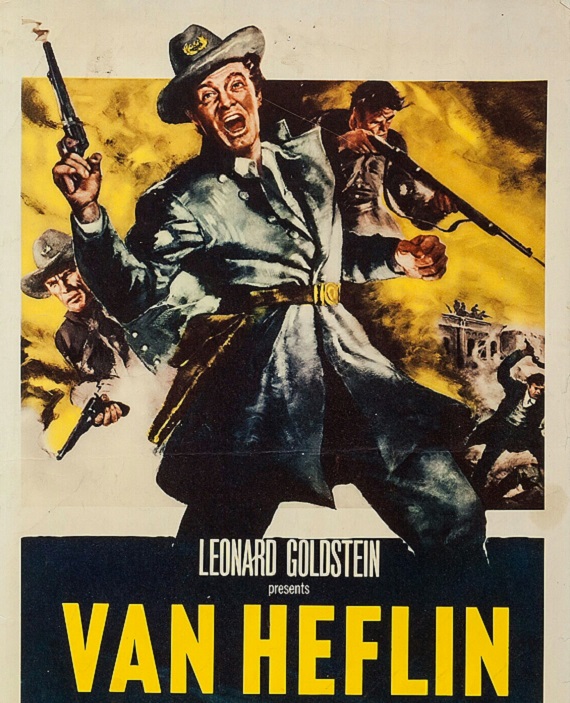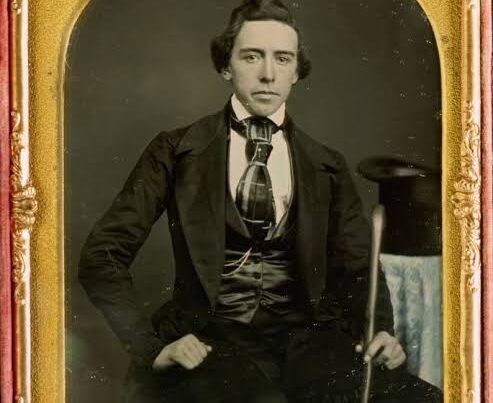Recent releases of four classic films should gladden the hearts of patriotic Southerners and those viewers not yet infected by the currently-raging virus of political correctness and multiculturalism.
A few years back Warner Brothers inaugurated an Archive series and began releasing hundreds of classic films that had, in most cases, never shown up previously in any commercially released video format. Warner began releasing these movies in the DVD-R format, copies of which could basically be made on demand. Very soon other studios, including MGM/United Artists, Sony/Columbia, and Fox initiated similar projects. The result is that inveterate viewers of classic films—and films about the Confederacy and the Old South—now have much greater choices in viewing.
Fortunately, several good War Between the States films from the 1930s-1950s have been included in these releases. Two of them on Fox DVD-Rs are highly entertaining, and would amply repay the investment of a few dollars. First, a real gem: The Raid (1954), starring Van Heflin, Anne Bancroft, and Richard Boone, detailing the famous Confederate raid on St. Albans, Vermont. The Raid is a superb war film, a model in its genre, in colour, with a good script, fine acting, and superior direction by old Hollywood pro, Hugo Fregonese. In particular, Lee Marvin, as the fractious Confederate trooper who hates Yankees (and can’t always hold his liquor), stands out. But The Raid also puts a human face on war, with Heflin’s Confederate officer character illustrating both nobility and admirable Southern honor. Fox has issued a re-mastered version, and it can be easily ordered using Amazon.com (in particular, Amazon’s marketplace feature).
A second Fox release is the 1938 Technicolor classic, Kentucky, showcasing Loretta Young, Walter Brennan, and Richard Greene. Beginning with depredations committed by a neighbor Yankee officer (Douglas Dumbrille) against a pro-Confederate landowner and horse-breeder in old Kentucky, the film then jumps up to the 1930s and a new generation competing in horse flesh and racing. Walter Brennan plays the crusty and irrepressible Peter Goodwin who had seen his father cut down by Federals during the War and who remains highly suspicious of the grandson of his hereditary enemy who begins to have designs on Brennan’s granddaughter, played by Loretta Young. With flair Young and Greene interpret the roles of the scions of the rival families, whose racing competition ends up in romance. Like other films produced before the advent of political correctness and the post-1960s trend of hatred of anything Confederate, Kentucky epitomizes the period when national harmony and respect of Southern tradition seemed to dominate. The acting, especially by Brennan, is fine and the colour photography—rare for 1938—is excellent. As I said, Kentucky is not politically correct, and its portrayal of blacks has offended some reviewers, whose vocabularies seem always limited to the word “racism.” But it is much more than a contextual view of race relations; it’s a heartwarming film that will appeal both to adults and the whole family.
A third recent release has shown up on Olive Films in both regular DVD and Blu-Ray formats (in a fine black and white print). Perhaps the finest movie about Reconstruction ever made and directed by one of the finest cineastes in the history of the film industry, John Ford, The Sun Shines Bright, is a sheer delight, combining all of the wonderful characteristics of Ford’s famous movie-making. As usual the “Ford actors ensemble” works extremely well together. Thus, Grant Withers, Jane Darwell, Russell Simpson, John Russell, James Kirkwood, Trevor Bardette, and other Ford regulars show up, playing off each other with ease and grace.
The story, taken from Irvin S. Cobb’s tales of Old Kentucky, details life towards the end of the 19th century, with the little community of Fairfield split between partisans of the South and those who appear to be mostly carpetbaggers or scalawags. In a role assumed by Will Rogers twenty years earlier (in another Ford classic, Judge Priest), Charles Winninger is simply perfect as Confederate veteran and bugler Billy Priest, now Judge of Fairfield County. Winninger heads up a diminishing encampment of the United Confederate Veterans. And Milburn Stone–Doc Adams of “Gunsmoke” fame—takes the role of Horace K. Maydew, the Republican attorney who hopes to replace Judge Priest at the next election.
As with most of Ford’s films, humour plays a central role. Add strictly comedic roles with Stepin’ Fetchit, Slim Pickens, and Francis Ford, and the traditional Ford magic takes off from the first scene and never ceases until the final credits. Fetchit is Judge Priest’s “boy,” an integral and beloved part of his household who keeps him abreast of all the gossip and news circulating in Fairfield, but also insures that the old judge gets his “rheumatiz” medicine every morning to, as he says, “get my heart started.”
Early on there is a rapturous scene in Judge Priest’s courtroom when a young black man is brought in for vagrancy (as charged by attorney Maydew), and Stepin’ Fetchit reveals that the boy can superbly play the banjo and asks him to begin “Dixie.” He does, and every UCV member in the small town hears it and makes his way to the courthouse to join in. It’s as if the whole town, both white and black, is celebrating “old times there are not forgotten.”
Yet, despite its boisterous humour and rhapsodic flow, The Sun Shines Bright also offers the spectator some wonderful insights into human nature, loyalty, justice, love of tradition and devotion to one’s native land. The final moving scene, with Judge Priest disappearing past a series of opened doors, was adapted by Ford years later for the final scene of his masterpiece, The Searchers.
Originally released by Republic on VHS cassette, The Sun Shines Bright has now been licensed to Olive Films who have released it both on DVD and Blu-Ray disc. For a birthday, an anniversary, or for any occasion, this film is a must for any Southerner and any lover of great filmmaking. John Ford, reportedly, said that The Sun Shines Bright was the favorite of all his superb films. That is high recommendation indeed.
The fourth recent release of a War-related film from the 1950s is a new re-mastering of Drums in the Deep South (1951). This movie has long been available, both on VHS cassette and DVD, but always in sub-standard and poor quality, with bad colour separation and smudgy video reproduction. I can recall many years ago seeing it on television, and even then the Super Cinecolor process looked bad. But, finally, VCI Entertainment has found an acceptable master copy and restored it. The Super Cinecolor is still a bit washed out (as most Cinecolor films are), but the colour separation is far superior to other editions and the copy on DVD is sharp, and does not detract from the story line. And the film can be had from sources like Amazon.com for under ten dollars.
James Craig stars as the Confederate officer charged with inhibiting Sherman’s march from Chattanooga to Atlanta, and his close friend, Guy Madison (not yet into his Wild Bill Hickok role), assumes the role of Craig’s Yankee nemesis. The action is plentiful and the attention to both historical and military detail is very good. The last scene, as James Craig decides to sacrifice his life for the Cause, is memorable. Final credits include the obligatory statement about a re-united nation, “indivisible,” but this should not deter purchasers.
Academy Award winning film composer Dmitri Tiomkin provides a lush and lyrical score. The result is another product that those devoted to Southern history, the War Between the States, and good cinema should snatch up without hesitation.
Amidst the clutter of contemporary attempts by Hollywood to produce politically-correct films on the history of the War Between the States period (with such ahistorical examples as Abraham Lincoln: Vampire Hunter and 12 Years a Slave now typical), exploring films of an earlier era in American history serve as an antidote to the infectious brew that both pollutes our minds and warps our judgment.








One Comment